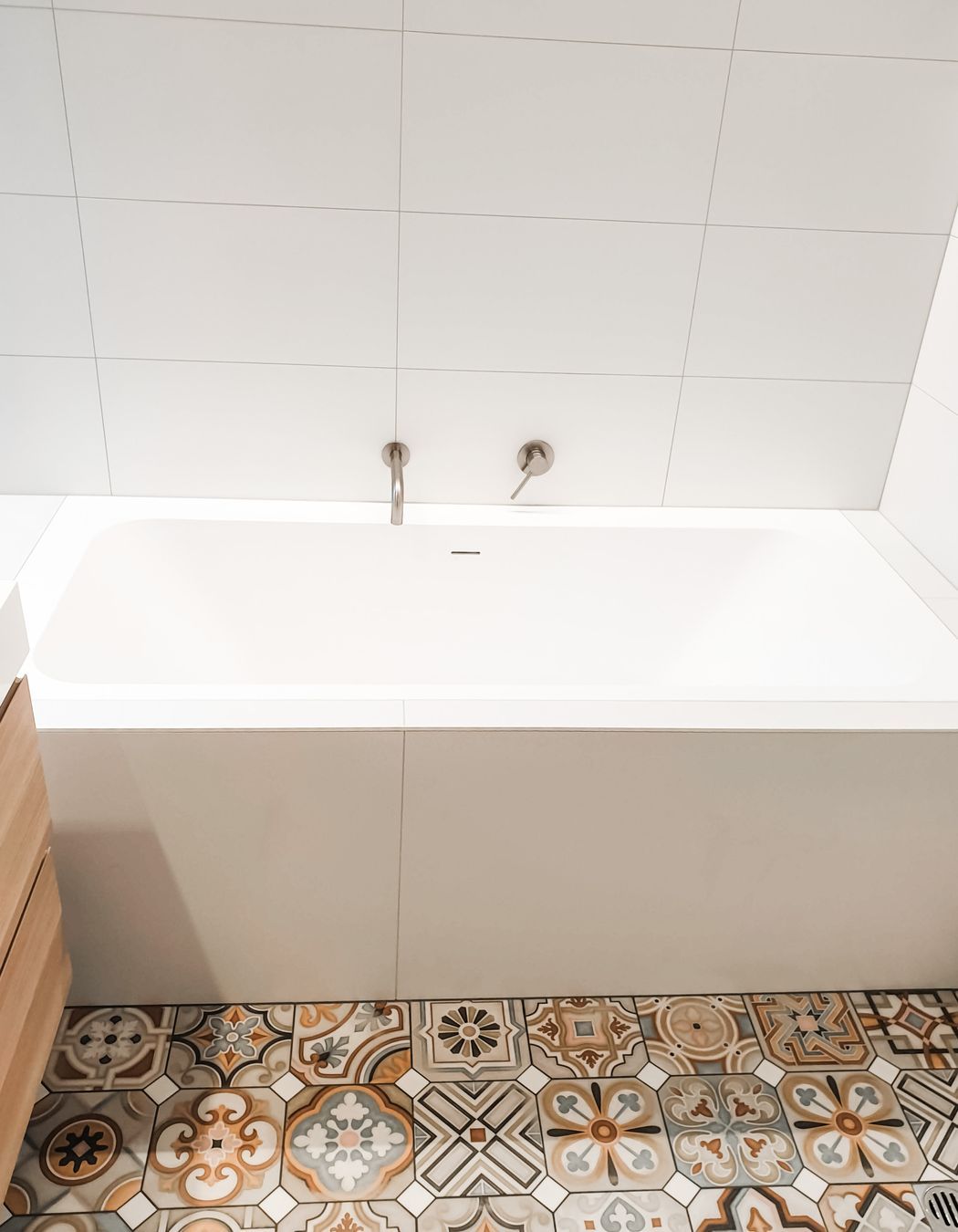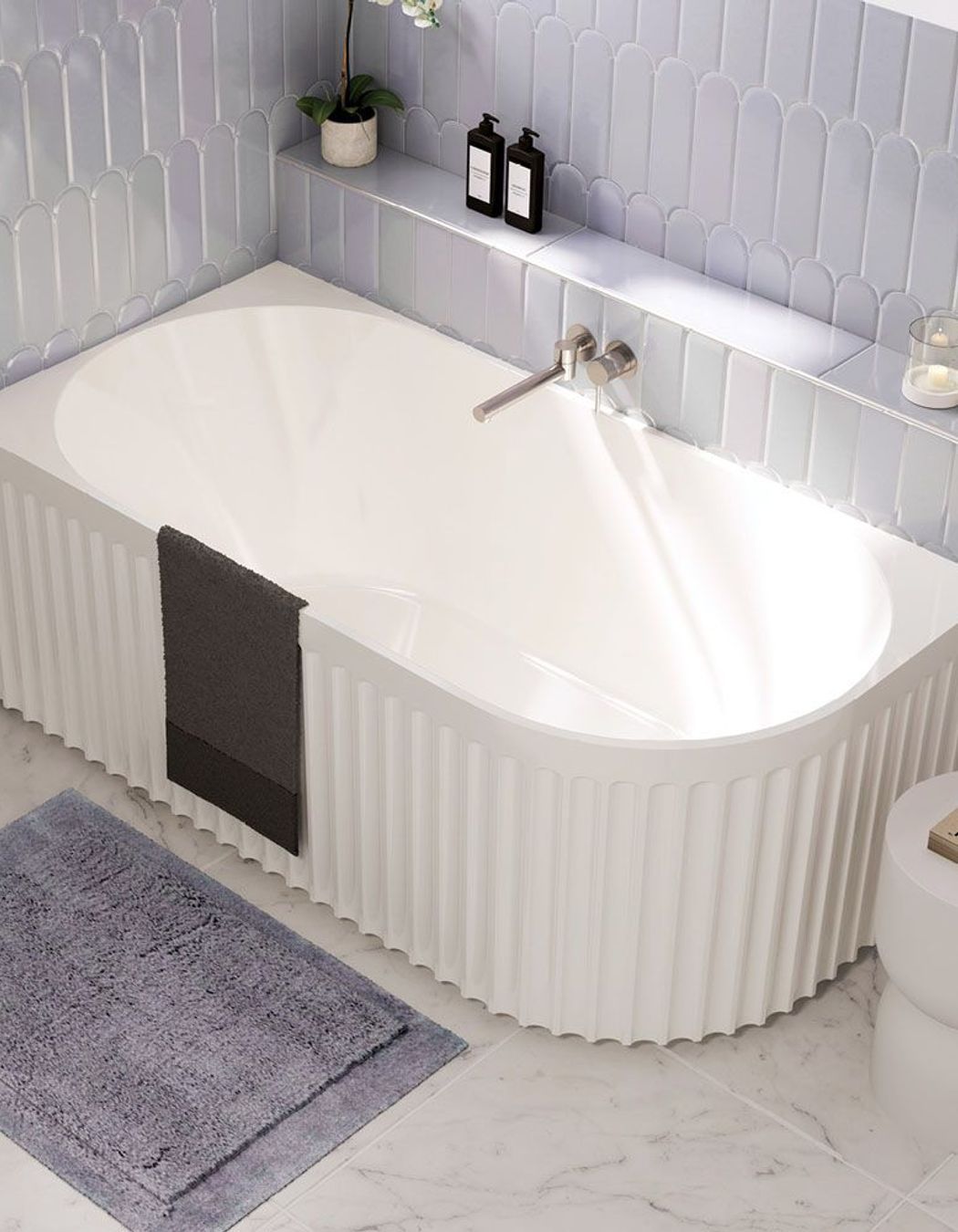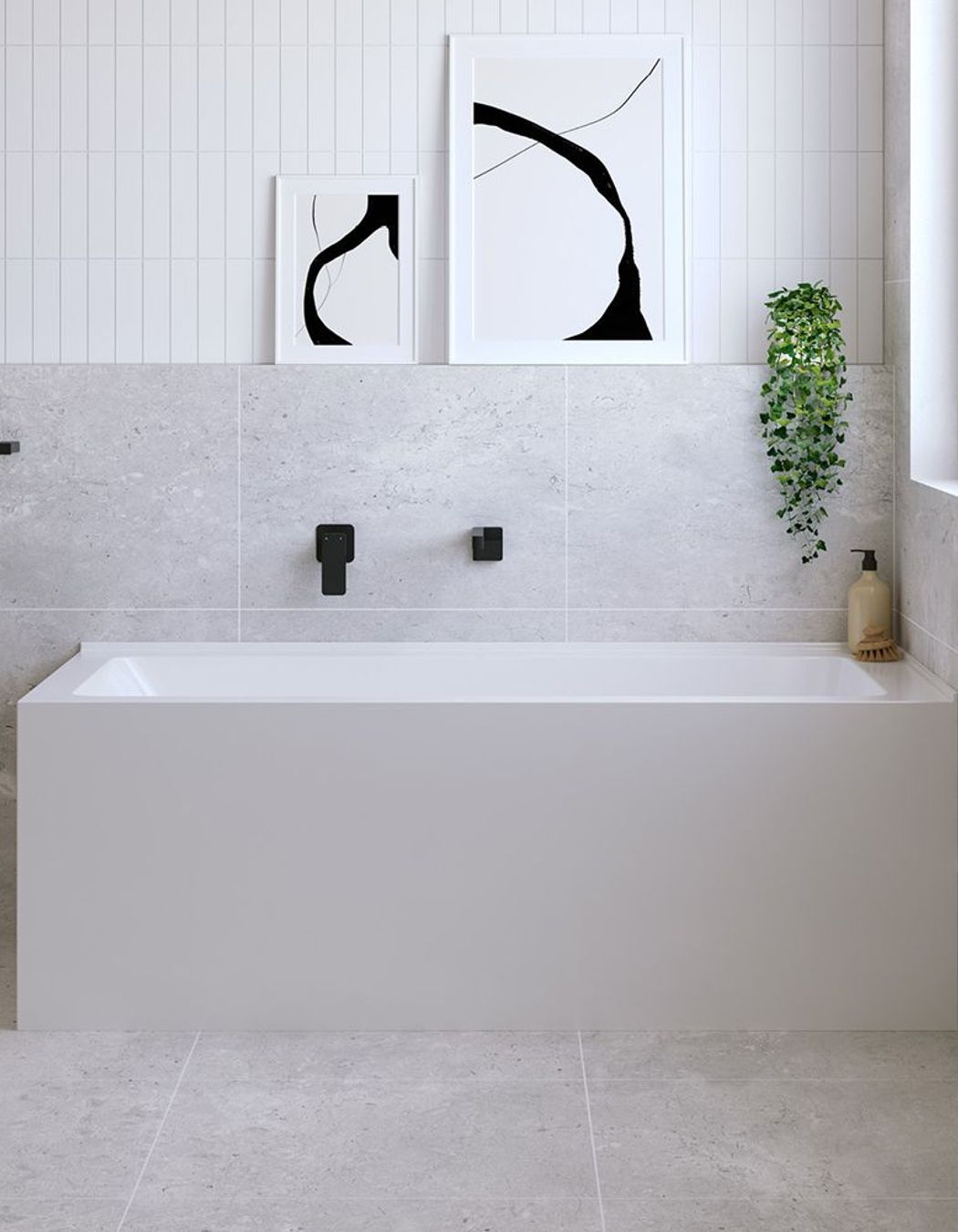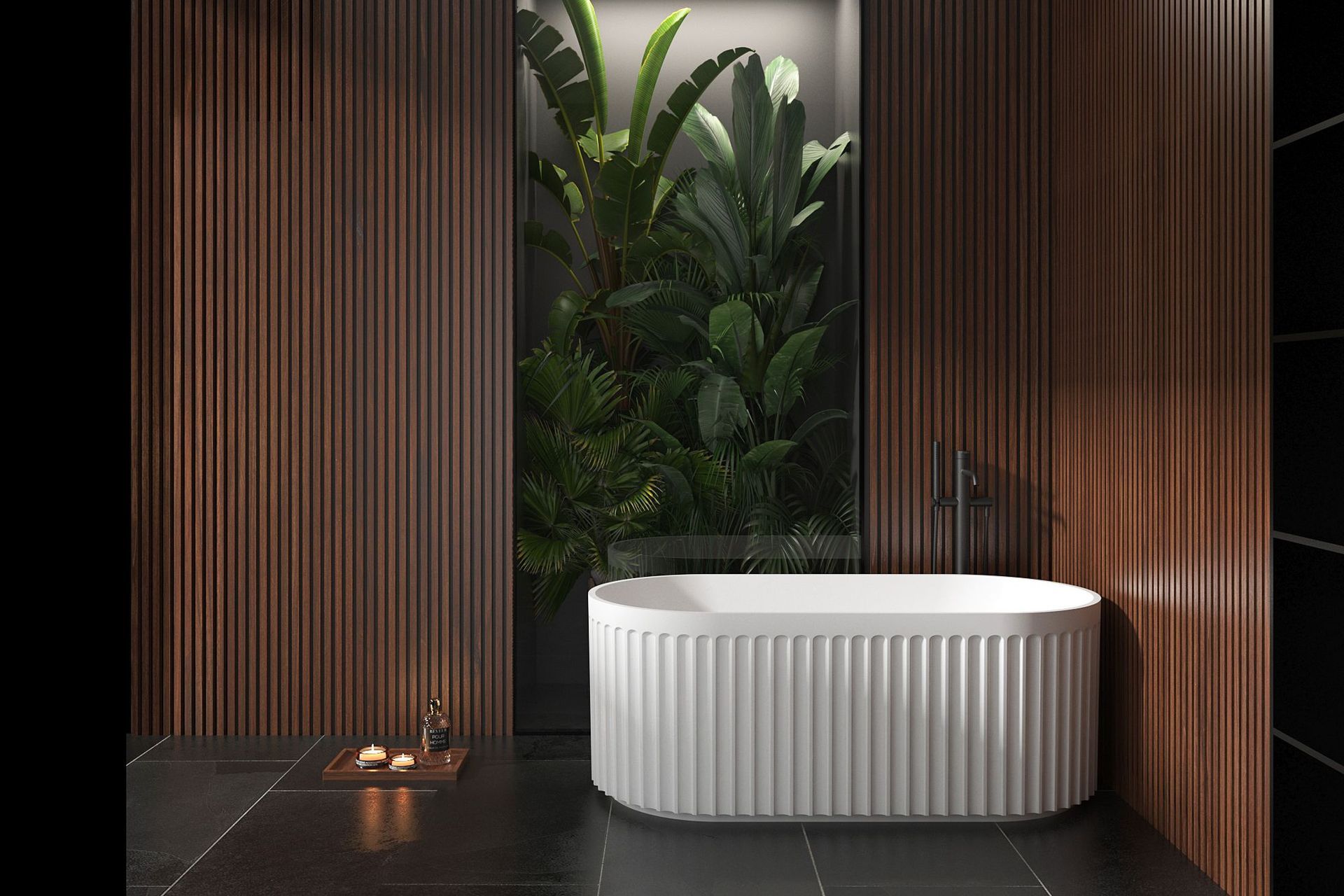9 different types of bathtubs for the Australian home
Written by
14 September 2022
•
6 min read

Bathtubs are as varied as the people who use them. They need to come in all shapes and sizes because we do as well. They also have to accommodate the wide range of bathroom layouts, designs and styles that exist, not to mention a variety of plumbing configurations. Fortunately, there is something for everyone and every space, and the different types of bathtubs highlighted below prove exactly that.
1. Drop-in bathtubs
A drop-in bathtub is a space-saving option made for smaller bathrooms and ensuites. They are installed on a platform that fits against the wall and sits on top of the floor. This makes them movable for when you move house or renovate your bathroom. The cost of drop-in tubs can range anywhere from $500 - $3,000+ depending on the size and quality of materials used to build them. The main disadvantage to using this type of bathtub is that it does not offer much room for storage underneath because of its design. However, few people utilise this area for storage anyway, so it is not a huge problem.
Related article: Renovating small bathrooms — The dos and don’ts

2. Alcove tub
An alcove tub is a great option if you want to make the most of your bathroom space. These tubs are mounted in an alcove or a three-walled enclosure and can be installed into any standard bathroom where there's a wall for support. Alcove bathtubs will typically have curved fronts with built-in seating instead of straight edges, adding to their visual appeal and providing comfort. These tubs are generally more expensive than other options since they require additional plumbing work — but if you have the budget and love soaking in style, then they are a great choice.
3. Freestanding bathtubs
Freestanding tubs are a very versatile type of bathtub. They come in many styles and are available in a variety of bathtub materials, including cast iron, stone, steel and acrylic. They can be installed as free-standing units or wall-mounted (though the latter is rare). When installed into stud walls, these tubs often require additional reinforcement for strength due to their weight (200+ kg). Freestanding baths are great soaking bathtubs and have an air of luxury about them. They exist in a range of styles from traditional clawfoot tubs to modern designs, all of which create a premium look and feel to your new bathroom.
Related article: Freestanding baths — A buyer’s guide

4. Corner bathtubs
If you're lucky enough to have a large bathroom, then you might want to consider installing a corner tub. These bathtubs provide more space for soaking and lounging while also making it easier to move around the rest of your bathroom. Corner baths are also great for smaller families or individuals who don't mind sharing the tub with others. Like all other kinds of baths, there's no one-size-fits-all solution when it comes to the corner bathtub. It just depends on how many are in your family, how much room you have in your house and how you want your bathroom to look.

5. Back-to-wall baths
Back-to-wall baths are designed to have one long edge against a wall, and the other three sides open. They are versatile in that they can be fitted into any room space you have available and they can be made from a variety of materials including acrylic, timber or cast iron. They can be incredibly sleek in design with concealed plumbing that many fans of minimalist bathroom designs appreciate. In saying that, they are a strong contender for any style of bathroom.
Related article: What are the latest trends for bathrooms?

6. Whirlpool tub
A whirlpool bathtub is a tub with built-in water jets designed to provide a hydrotherapy massage. This type of bathtub helps to relieve muscle tension and muscular aches, which can be beneficial for people who suffer from chronic pain. It can also be used for relaxation purposes, making it an excellent option for those who live in chilly climates or have very busy schedules. Whirlpool tubs are highly customisable and can be installed in almost any space after the necessary plumbing work has been done. They come with several different features that allow you to control everything from the temperature of your water to how many pumps will go into each session. A real state-of-the-art choice.
7. Air tub
Air tubs are great for anyone who likes to experience the feeling of getting a massage without actually being touched. An air bath uses jets of air instead of water to create a deep, luxurious soaking experience. Air baths are similar to whirlpool baths but do not have water jets. Instead, they pump the air through at different levels and speeds depending on what type you have installed and where you're sitting in the tub (premium versions let you set how much pressure is applied). As any experienced bather will tell you, this type of bath uses far less water than traditional baths or even whirlpools — making them a great environmentally friendly option.

8. Shower over baths
The shower over bath gives you the best of both worlds, combining a bath and a shower head in one space. It’s a fantastic space saver for the obvious reason that it eliminates the need for a separate shower cubicle. You can have these fitted with a traditional shower curtain, providing a new design feature that you can stylishly exploit or you can use a sleek shower screen to keep the space and your bathroom feeling open. It’s a great option to consider opening up extra space in a small bathroom for a toilet, laundry or additional storage.
Related article: Sublime bathroom shower ideas for your home

9. Walk-in bathtubs
Walk-in bathtubs are designed with accessibility and comfort in mind, making them ideal for individuals with mobility issues or those planning to age in place. They feature a built-in door that allows easy entry and exit, eliminating the need to climb over the tub's edge. Many walk-in tubs also include seating, grab bars, and water jets for a relaxing soak. With their safety-first design, walk-in bathtubs provide both practicality and luxury, ensuring everyone can enjoy a comfortable bathing experience.
Related article: Disabled bathroom design tips that are safe and stylish

Choose the type of bathtub that works best for you
As you can see, there is a huge range of choices when it comes to choosing your bathtub. With so many different types of bathtubs, it can be difficult to know what works best for you. But, by understanding the unique traits and qualities of each you can feel more confident that your eventual pick will be one that works best for you.